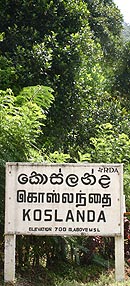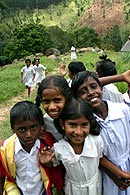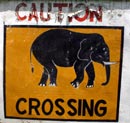





Code of Ethics for Tourists

|
Personal guidelines for responsible tourism, particularly in Third World countries, were formulated by the Center for Responsible Tourism (www.icrtourism.org).
- Travel in a spirit of humility and with a genuine desire to learn more about the people of your host country.
- Be sensitively aware of the feelings of other people, preventing what might be offensive behaviour on your part. This applies very much to photography.
- Cultivate the habit of listening and observing, rather than merely hearing and seeing.
- Realize that often the people in the country you visit have time concepts and thought patterns different from your own; this does not make them inferior, only different.
- Instead of looking for that ‘beach paradise’ with flights to Myrtle beach, discover the enrichment of seeing a different way of life through other eyes.
- Acquaint yourself with local customs - people will be happy to help you.
- Instead of the Western practice of knowing all the answers, cultivate the habit of listening.
- Remember that you are only one of the thousands of tourists visiting this country and so do not expect special privileges.
- If you really want your experience to be ‘a home away from home,’ it is foolish to waste money on traveling.
- When you are shopping, remember that the ‘bargain’ you obtained was only possible because of the low wages paid to the maker.
- Do not make promises to people in your host country unless you are certain you can carry them through.
- Spend time reflecting on your daily experiences in an attempt to deepen your understanding. It has been said that what enriches you may rob and violate others.
These guidelines were expanded into the formal Global Code of Ethics for Tourism and adopted by the U.N. General Assembly in 2001. The Global Code comprises a "comprehensive set of principles whose purpose is to guide stakeholders in tourism development: central and local governments, local communities, the tourism industry and its professionals, as well as visitors, both international and domestic."
|
|